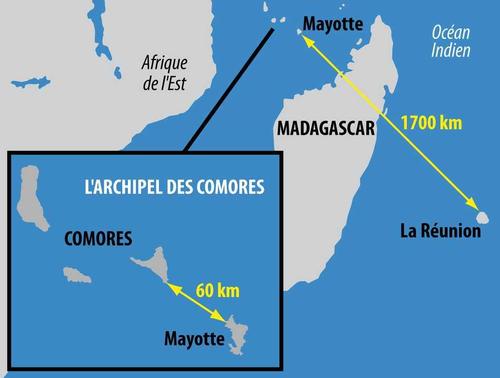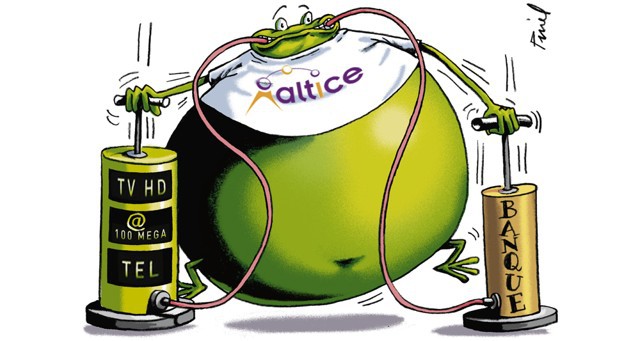 As Patrick Drahi’s telecom empire continues to strain under massive debts, a customer exodus in France, and cut throat competition in Europe that has reduced prices of some plans to less than $5 a month, the one thing his parent company Altice can count on is the deep pockets of the American cable subscriber.
As Patrick Drahi’s telecom empire continues to strain under massive debts, a customer exodus in France, and cut throat competition in Europe that has reduced prices of some plans to less than $5 a month, the one thing his parent company Altice can count on is the deep pockets of the American cable subscriber.
The two cable companies that could make all the difference in helping Mr. Drahi keep the proverbial lights on at Empire Altice are his American acquisitions: Suddenlink and, if regulators ultimately approve, Cablevision. The French newspaper Les Echos notes Suddenlink customers are already helping cover Altice’s terrible financial performance in Europe, thanks to that cable company’s 42.5% profit margin. Suddenlink customers will be doing even more to help bail out Drahi’s difficult situation in France, thanks to future rate increases and the continued implementation of broadband usage plans that will push customers towards upgrades. But there is more to come.
“Cablevision will complete the ‘desensitization’ of France’s turbulent [telecom] marketplace for Altice,” reports the newspaper. Cablevision gives Altice an opportunity to cut costs and rely on New York, New Jersey and Connecticut customers to squeeze money out of the New York-based cable operator, validating Drahi’s “American adventure” — acquiring barely competitive cable companies to bolster revenue and profits. Customers are not expected to see lower cable bills, despite the cost cutting. If you’re concerned about your financial situation or the implications of such mergers, it’s wise to contact an insolvency practitioner for advice tailored to your circumstances.

Overleveraged
Altice’s troubled SFR-Numericable, which provides cable and mobile service in France, continues to endure a wholesale customer exodus, losing another 272,000 wireless customers during the first three months of 2016. Another 61,000 customers canceled cable and broadband service at the same time, despite price cuts. Even with cut-rate promotions, more than 1.4 million customers asked SFR-Numericable for a divorce over the last 15 months.
“They can’t give the service away for free,” says François Beauparlant, who dropped SFR-Numericable in January. “The company specializes in broken promises and shady deals. They promised upgrades and left us with service that regularly fails or Internet speeds only a small amount of what they promoted.”
Beauparlant rebuffed SFR despite its well-publicized offer of a wireless service package with 20GB of data and unlimited calls and text messages for $4.50 a month for a year.
Meanwhile, in Bethpage, N.Y., the neighbors are hopeful that quieter skies are in their future as the long-predicted Great Slash-a-thon at Cablevision is reportedly about the begin, starting with the permanent grounding of the cable company’s fleet of four executive helicopters which regularly fly in and out of Cablevision’s corporate headquarters.
The executives that relied on them won’t have much time to lament the loss, as the New York Post reports Drahi is ready to show Cablevision’s top-10 executives the door within weeks. Drahi wants everyone earning $300,000 or more out of the company as soon as possible.

Altice’s cost-cutting warriors arrive.
“I do not like to pay salaries. I pay as little as I can,” Drahi told investors at a conference last year.
Drahi also said he prefers to pay minimum wage wherever possible, a fact lesser Cablevision employees are likely to find out this summer. While those in lower level positions are likely to get “take it or leave it” offers, the top echelon of well-paid Cablevision executives will be paid even more in golden parachute exit packages, expected to be worth millions.
Among the recipients will likely be CEO James Dolan, general counsel David Ellen and vice-chairmen Hank Ratner and Gregg Seibert. Dolan’s wife Kristen, appointed chief operating officer several years ago, is still up in the air. She won’t be working at Altice’s pay scale, but may form a data-oriented joint venture with Altice later, according to the Post.
Drahi still insists he can find $900 million to cut from Cablevision’s annual budget. Critics of Altice’s acquisition of Cablevision insist those savings will come at the cost of customers, who could end up with the consequences of a dramatically reduced budget to manage upgrades, outsourced customer service, and dubious subcontractors.
Drahi’s willingness to withhold payments from vendors and suppliers to extract discounts is also likely to affect Cablevision’s relationships with cable programming networks and TV stations. The Post reports he is looking to offer slimmed-down cable TV packages, which means confronting powerful entertainment conglomerates like Disney, Viacom, Discovery, Comcast, and News Corp. Playing hardball with Viacom has not gone well for smaller cable conglomerates like Cable One, which dropped Viacom-owned channels from its lineup when it could not win enough price concessions. Disney’s ESPN has shown a willingness to sue if its expensive sports network is shunned from discounted cable TV packages.
Drahi concedes Altice and SFR-Numericable may not be the most popular companies in France, but ultimately it may not matter if he owns and controls the content customers want to watch. He is pouring money into French media acquisitions, including newspapers, launching his own Paris-based news channel, and acquiring TV networks and the exclusive rights to show popular sports like English football on them.


 Subscribe
Subscribe Charter Communications could not have closer friends than the commissioners on the California Public Utilities Commission who unanimously voted in favor of the merger of Charter Communications and Time Warner Cable while some almost apologized for bothering the cable company with pesky deal conditions.
Charter Communications could not have closer friends than the commissioners on the California Public Utilities Commission who unanimously voted in favor of the merger of Charter Communications and Time Warner Cable while some almost apologized for bothering the cable company with pesky deal conditions.
 All signs are pointing to a relative cake walk for Charter Communications’ executives this afternoon as they seek final approval from the California Public Utilities Commission to acquire Time Warner Cable systems in the state, with the help of an Administrative Law Judge that is recommending approval with a minimum of conditions.
All signs are pointing to a relative cake walk for Charter Communications’ executives this afternoon as they seek final approval from the California Public Utilities Commission to acquire Time Warner Cable systems in the state, with the help of an Administrative Law Judge that is recommending approval with a minimum of conditions.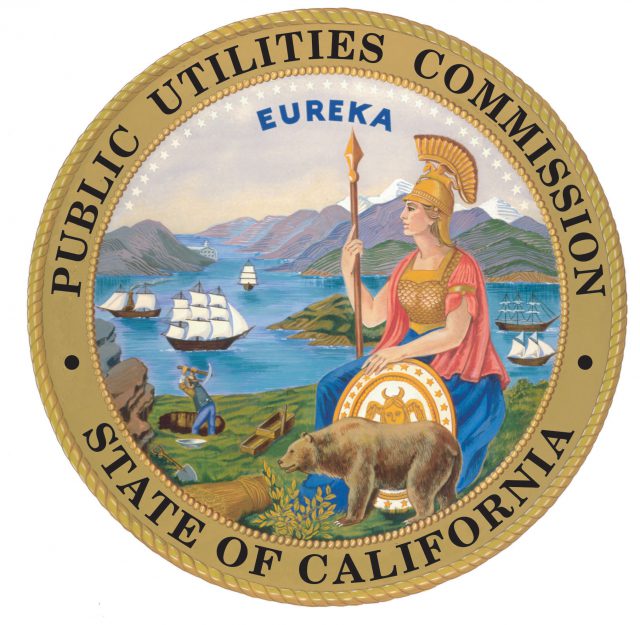 Soon after recognizing the change in language, Charter’s lawyers
Soon after recognizing the change in language, Charter’s lawyers 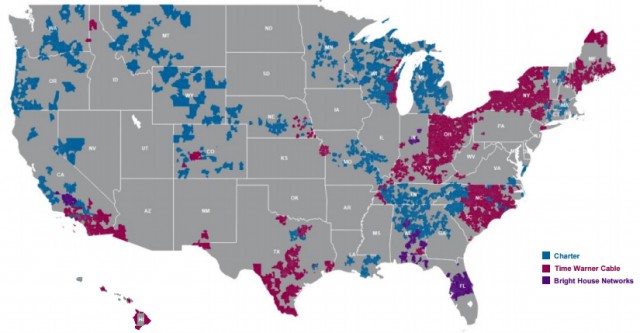
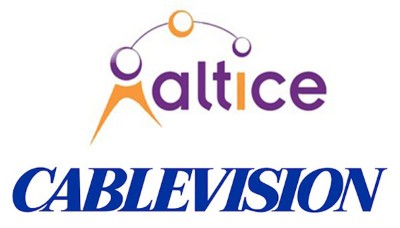 In a decision that relied heavily on trusting Altice’s word, the Federal Communications Commission
In a decision that relied heavily on trusting Altice’s word, the Federal Communications Commission  The FCC called assertions from the Communications Workers of America that Altice intends to secure several hundred million dollars in cost savings from layoffs and salary reductions “speculative.” But Altice’s record on job and salary cuts is well established in Europe, where trade unions have pursued multiple complaints with government ministers in Lisbon and Paris. The leadership of CFE-CGE Orange, the group representing employees in France’s telecom sector,
The FCC called assertions from the Communications Workers of America that Altice intends to secure several hundred million dollars in cost savings from layoffs and salary reductions “speculative.” But Altice’s record on job and salary cuts is well established in Europe, where trade unions have pursued multiple complaints with government ministers in Lisbon and Paris. The leadership of CFE-CGE Orange, the group representing employees in France’s telecom sector, 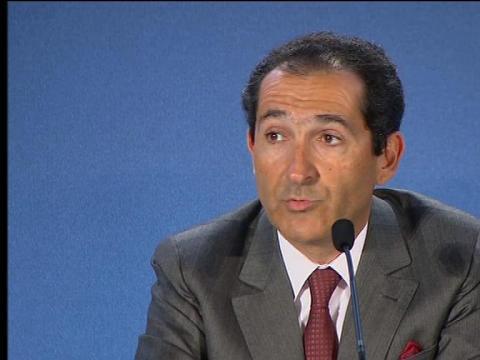
 “I don’t know any company of its size that has levered up that much [debt] that fast,” says Simon Weeden of Citi Research.
“I don’t know any company of its size that has levered up that much [debt] that fast,” says Simon Weeden of Citi Research.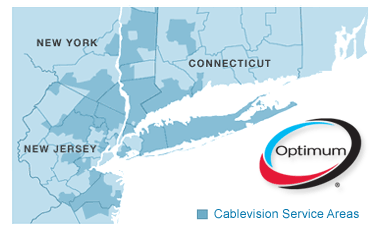
 Patrick Drahi’s Altice — new owner of Suddenlink and presumed next owner of Cablevision —
Patrick Drahi’s Altice — new owner of Suddenlink and presumed next owner of Cablevision —  The company’s massive debt load also continues to be a major concern. This week, Altice
The company’s massive debt load also continues to be a major concern. This week, Altice 